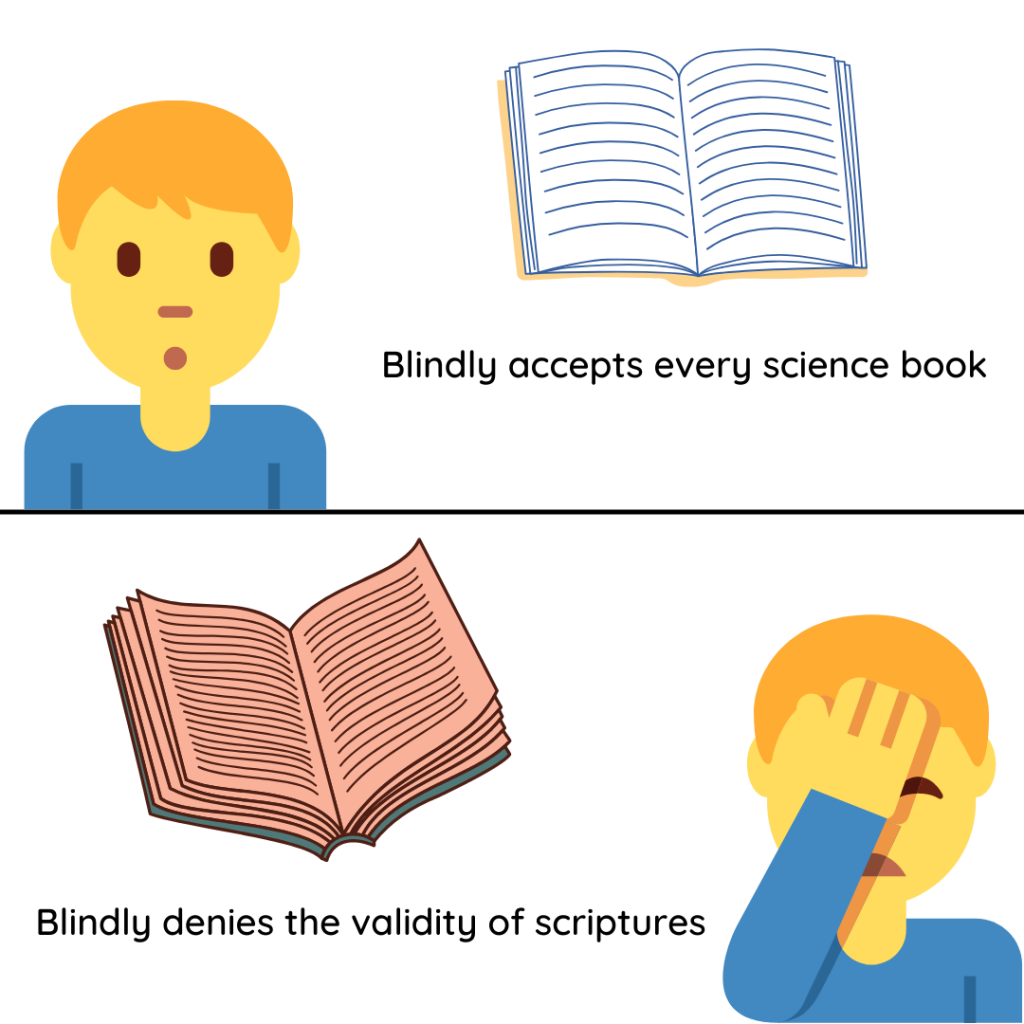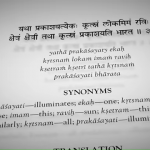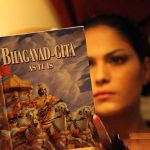Rejection without Knowing – Ever since our childhood, we have been reading science books. If not science, we must have read books on history, geography, literature, or arts. Every book we read presented some facts and ideas, and we accepted them as the truth. We studied physics and biology but never bothered to check even the simple experiments and validate them. We just read the experiments and considered them as the truth. Why? Weren’t we inquisitive? The answer is no, we were indeed curious, but we did not have time. Also, the books we read had descriptions that proved that it was written by some great scientist, professor, or academician after a long period of study and research. Although those books may have been wrong, we did not dare to reject authority in that subject.
Table of Contents
Major Misconceptions
But today, when people read the shastra, with a preconceived notion that it is just speculation, philosophy, and moral science, they straightaway start denying the facts and philosophy. This happens because of three main misconceptions:
- Too much faith
- Missing Science
- Missing logic
First of all, let us talk about faith. People think those statements are just beliefs and not the truth because they can not validate them using their senses. The contradiction here is, “the people themselves have a faith that the things which can not be verified using the sense organs do not exist at all.” Believing our senses and experience is also faith. Our senses are illusioned and have defects; therefore, we see a mirage, we see a snake in a rope, etc. They have their own limits. So it would not be right to reject what senses can not approve.
Moreover, I would like to elaborate on the second misconception. Those who think that the shastras are not scientific are grossly ignorant. How can they even think of such claims if they haven’t read the scriptures? Words would fall short if I start enumerating the various scientific facts given. From exact speed of light to value of pi, from embryology to fundamentals of metallurgy, and from laws of life to laws of the cosmos, the science in the shastras is more advanced than what we have today. The critical aspect is that the materialistic science(which today’s generation is searching for) has not been glorified much, so we don’t know much about it. The shastras talk of a more important science which is the science of life and divinity. Sadly, the misguided and conditioned generation today does not show any interest in it.
Furthermore, people think that the world runs on logic, and therefore, we should not accept anything illogical. I want to ask them, If logic is everything, then why doesn’t every hardworking human becomes successful? Why does a laborious student sometimes score lesser than a naughty one? Where’s the logic? We care about logic only when we read scriptures because it doesn’t fit our timid brains, filled with all kinds of so-called science and materialistic nonsense.

For a student of the fourth standard, the syllabus of class 10 would seem meaningless. The science would appear to be fiction for him, and he will straightaway refuse to accept the facts unless he is guided up to class 10th by a bonafide teacher. Similar is the case with shastras. We are like fourth-standard students who have only learned science and logic, and material pleasure is our only goal. But in this case the problem is, due to lack of guidance we are not able to reach the tenth-standard and to remain in our comfort zone; we say that these things are just fiction.
I want to make it clear that I am not against curiosity or questioning. I am against defaming and clear-cut denial. On the one hand, curiosity speeds up one’s development and progress in any field, and on the other hand rejection without proper understanding narrows down the chances of growth. We read both the “Theory of Relativity” and The Bhagavad Gita. In the former case, we accept without examining, and in the latter, when we read about rebirth or other such phenomenon, we reject it. We immediately accept Einstein as an authority, but sadly we don’t give much importance to our acharyas and rishis. In both cases, it is wrong. The right way is to go, enquire and ask your questions to a person who knows the subject and then make a conclusion.
Conclusion
I want to conclude by reiterating that our senses and logic are not the ultimate sources. The knowledge which we gain from these sources will always keep on changing. This is not my personal opinion, but it is a fact. We switched from Newton’s classical mechanics to Quantum Mechanics, from Rutherford’s model to Bohr’s model, and many more. The list is endless. Whereas in the case of Shastras, even a single syllable hasn’t changed since time immemorial. We cannot understand them because we are not with the right teacher and are very unqualified. If we go to a bonafide teacher, he will gradually clear our doubts and misconceptions, and then we will be able to understand the ultimate science, which seems illogical to us today.



